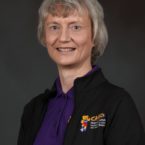Youth with medical conditions or disabilities (MCD) seldom achieve healthy physical activity recommendations. Barriers include a perceived lack of competence, fear of pain/symptom exacerbation, or physical function changes. A 12-week intervention targeting physical activity confidence was evaluated among youth with MCD.
This three-arm randomized controlled trial (in-person/virtual/control) enrolled youth (8 to 18 years) requiring ongoing medical care from tertiary paediatric clinics. Readiness Ruler (motivation ≥4/10, confidence ≤8/10) determined eligibility. Blinded assessments (0, 3, and 6 months) were total motivation/confidence (Canadian Assessment of Physical Literacy), physical activity (7-day accelerometry), screen time, and sleep behaviours. Intervention (2 h × 12 weeks, in-person or virtual) combined game/sport skills with activity participation and education.
Sixty-three youth (of 111 randomized) with baseline total motivation/confidence below recommended levels among 31 children and 32 adolescents (51% male, mean age 13.1 ± 3.0 years). In a model adjusted for age and baseline confidence, activity confidence at 3 months was higher among in-person intervention participants compared with control participants (beta = 1.7 [95% Confidence Interval (CI): 0.3, 3.1], P = 0.02). Higher confidence was associated with higher physical activity (r = 0.30; P = 0.01) and decreased sedentary time (r = 0.74; P < 0.001).
Youth who were confident were more likely to engage in physical activity. The in-person intervention increased participants’ activity confidence. The limited impact of the virtual format suggests that implementing new skills with peers is critically important for enhancing activity confidence. Further research is required to evaluate whether confidence gains could be sustained beyond the study intervention, would longitudinally increase activity participation over time, or would transfer to other activity settings.
Researchers
-
Hana Alazem
Investigator, CHEO Research Institute
-
Anna McCormick
Investigator and Mentorship Vice-Chair, CHEO Research Institute
-
Christine Lamontagne
Investigator, CHEO Research Institute
-
Leanne Ward
Senior Scientist, CHEO Research Institute
-
Sherri Katz
Senior Scientist, CHEO Research Institute
-
Marie-Eve Robinson
Investigator, CHEO Research Institute
-
Lesleigh Abbott
Investigator, CHEO Research Institute
-
Tom Kovesi
Investigator, CHEO Research Institute
-
Patricia Longmuir
Senior Scientist, CHEO Research Institute









